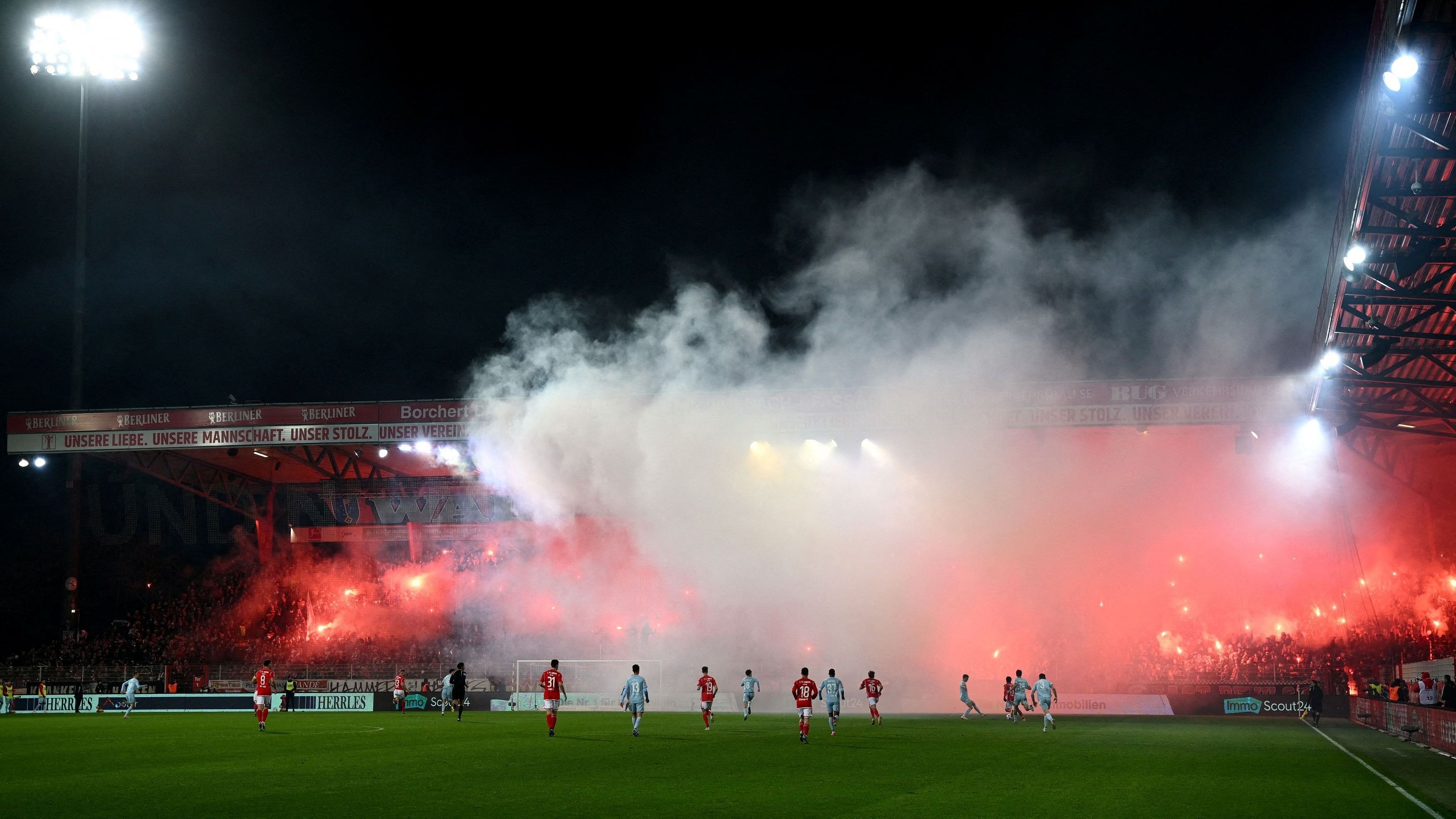
Representative image of football fans.
Credit: Reuters Photo
London: The wave of fans' resistance was so ferocious the last time the European Super League reared its head that the six English Premier League clubs involved quickly jumped ship, effectively stopping the project in its tracks.
So although Thursday's European Court of Justice ruling against European soccer governing body UEFA was celebrated by those still seeking to make the plan a reality, namely Barcelona and Real Madrid, fan power could once again be their biggest hurdle.
When the European Super League was launched like a bolt out of the blue in April 2021, 12 clubs initially signed up with three more expected to form a "founding 15" for whom relegation would be impossible. Five more clubs would have had the chance to join annually based on domestic performances.
It went against the ethos of meritocracy that remains the bedrock belief of the vast majority of soccer fans and whose anger, particularly in England where the 92-club pyramid system is cherished, quickly manifested itself in protests.
Stung by the outrage, Manchester City, Manchester United, Liverpool, Arsenal, Chelsea and Tottenham Hotspur beat hasty retreats and within 48 hours of its launch, the ESL project lay in tatters.
Even after the threat diminished, anger boiled over when United's game against Liverpool in May was abandoned after a stadium and pitch invasion in protest at United owner Joel Glazer and his role in the club's ESL flirtation.
The push back proved so strong that a Fan-Led Review was commissioned within days and last month the recommendations of that, including for an independent regulator, formed part of the Football Governance Bill that will become law next year.
Under the regulator, all English clubs will be forced to have a license which can be withdrawn if they attempt to join breakaway leagues.
New project
Hours after the European Court of Justice ruled that UEFA and world governing body FIFA had breached EU law by preventing 12 clubs joining the ESL, a new project was outlined by A22.
The organisation's CEO Bernd Reichart said the 64-team men's league would feature relegation and promotion and would be "open, meritocratic and accessible" and would set clubs free.
He also dangled a carrot by saying the European Super League, a direct threat to UEFA's flagship Champions League, would be shown free on a fan-centric streaming service.
But despite the silky presentation, fan groups remain unimpressed and Manchester United, perhaps wary of antagonising their fanbase, quickly re-affirmed their support for UEFA competitions.
"Supporters, players and clubs have already made clear they don't want a stitched-up competition -- we all want to see the trigger pulled on the walking dead monstrosity that is the European Zombie League," Football Supporters Association chief executive Kevin Miles said in a statement.
"While the corpse might continue to twitch in the European courts, no English side will be joining. The incoming independent regulator will block any club from competing in domestic competition if they join a breakaway super league."
Campaign group Fair Game said the European Super League was not in the wider interests of the sport.
Reacting to A22's proposals, a spokesman said: "The devil is in the details, but what is essential is that such a venture cannot ever be allowed to pass.
"It is now up to the incoming independent regulator to put the final nail in the coffin of the European Super League."
In a statement the Premier League said it rejected the concept of a European Super League
"Supporters are of vital importance to the game and they have time and again made clear their opposition to a breakaway competition," it said.